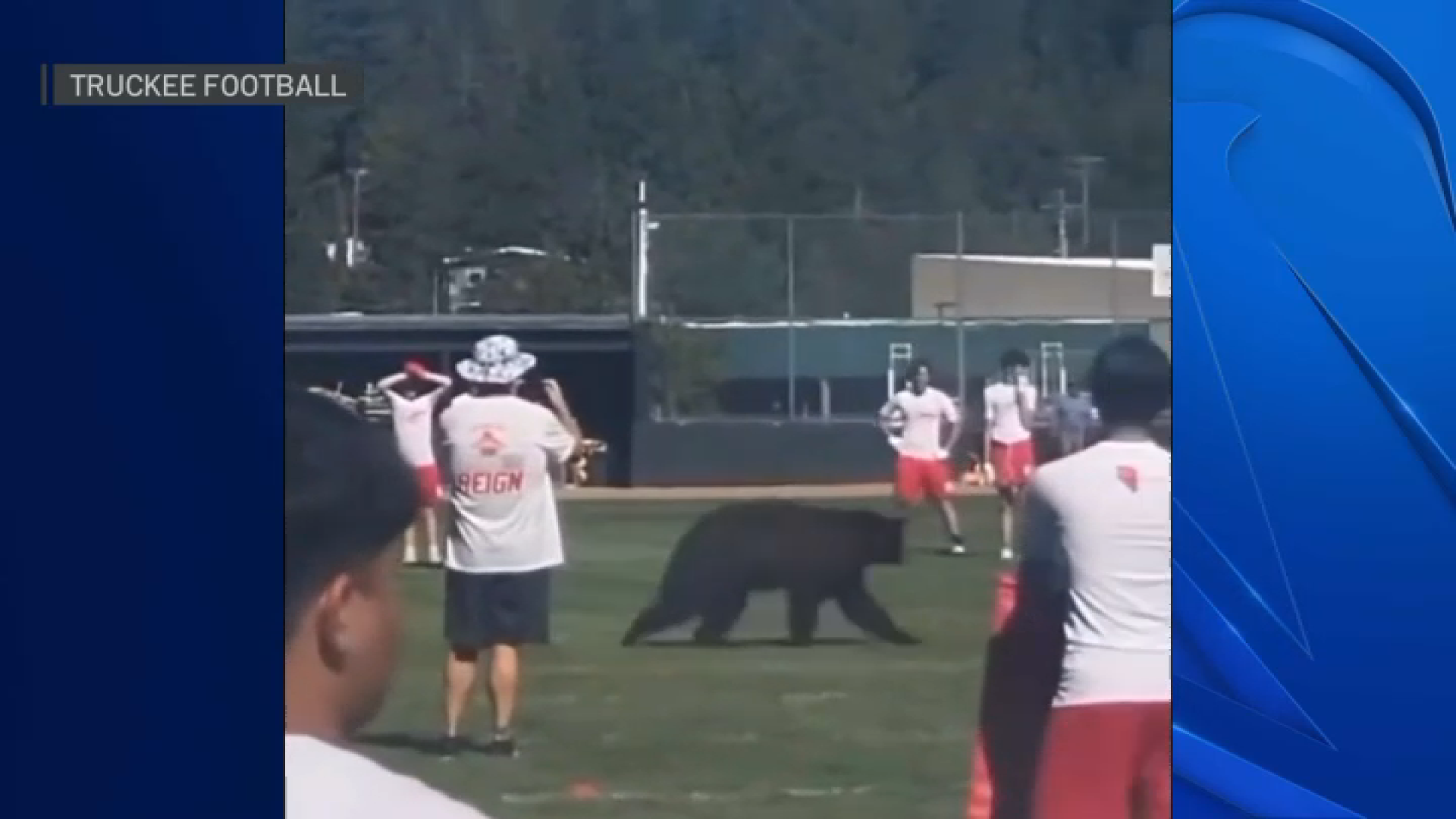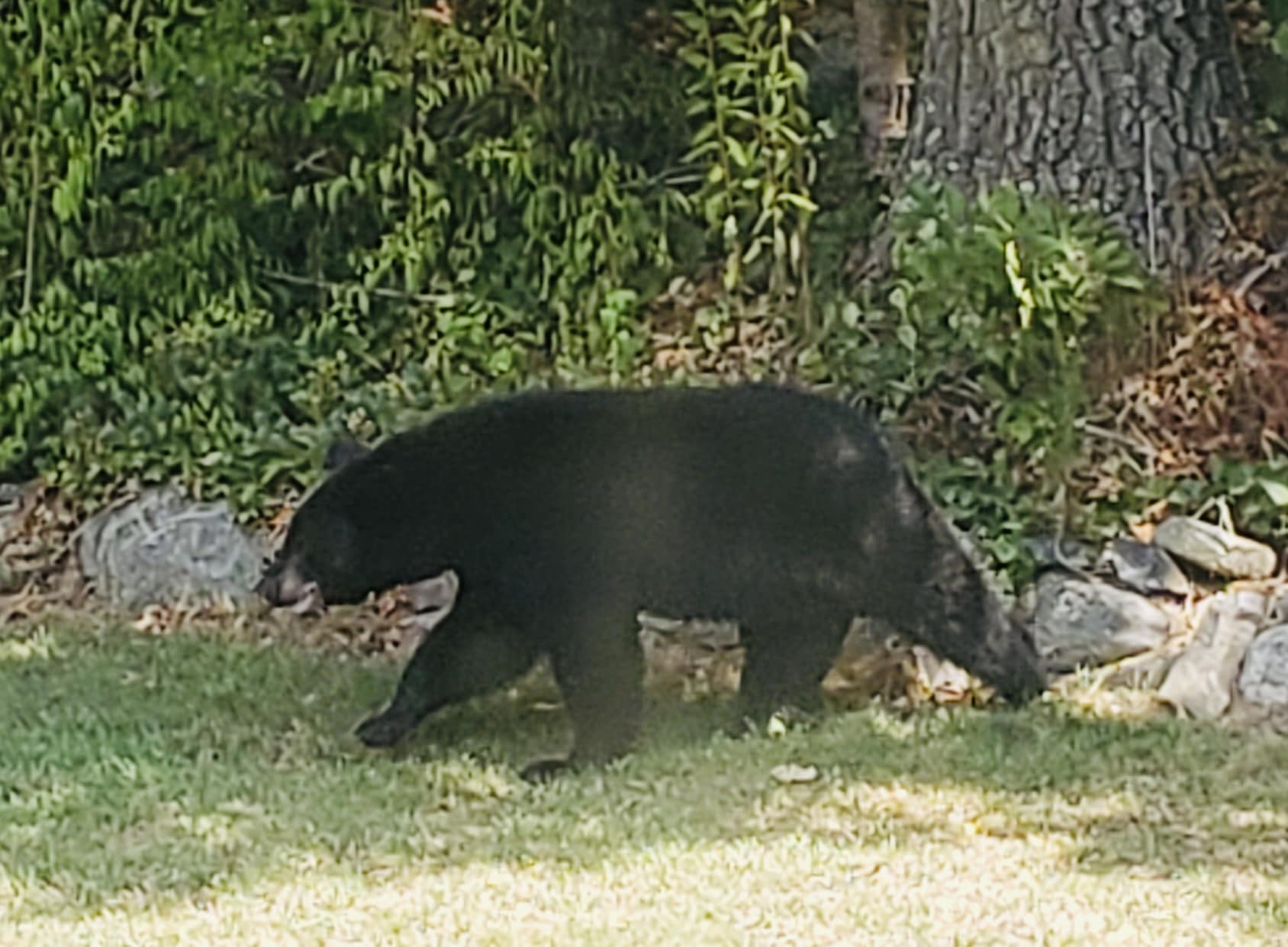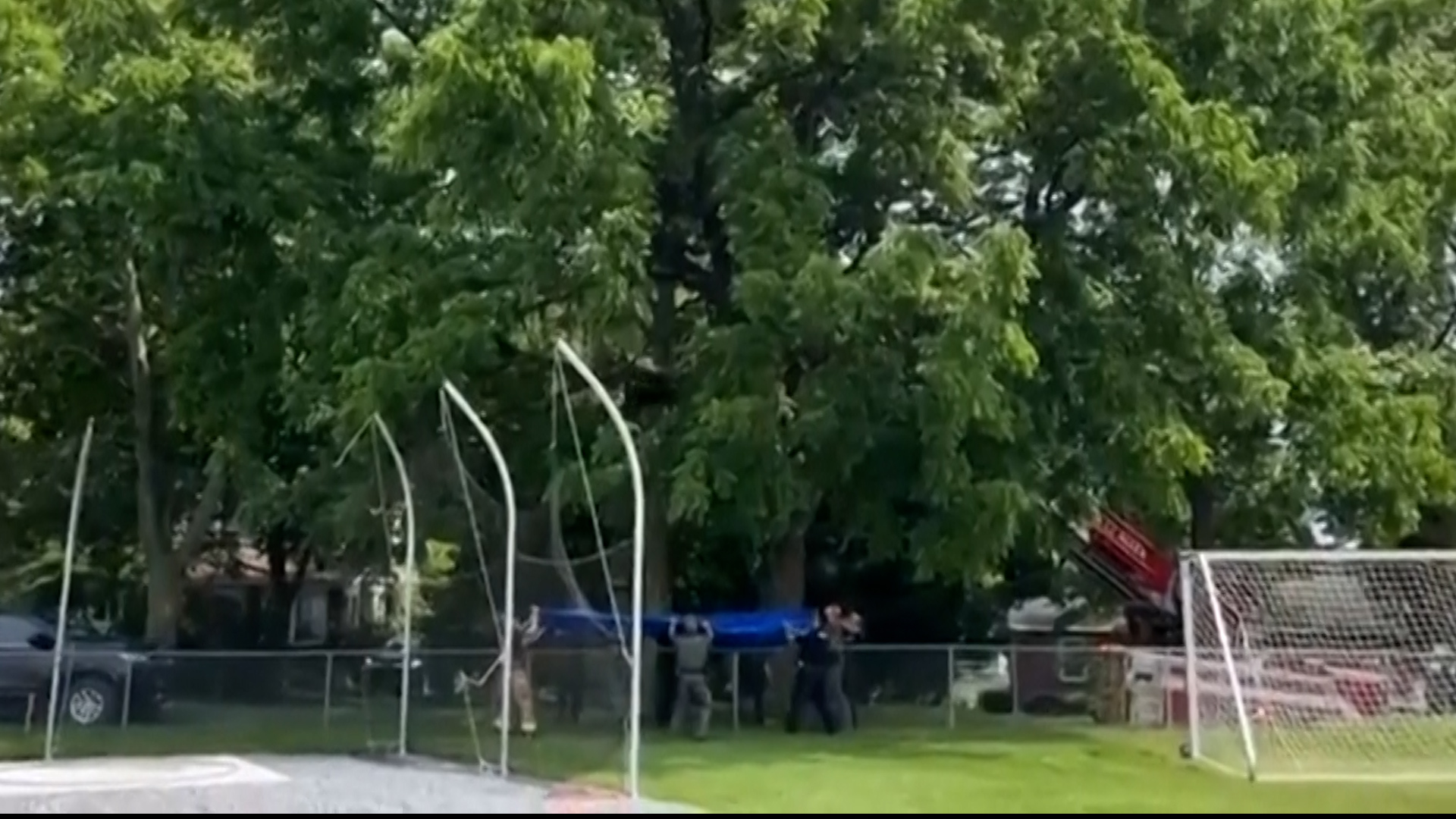
A black bear was safely removed from the backyard of a home in downtown Worcester on Friday, authorities said.
Eyewitness video showed a MassWildlife team carry the bear to a waiting pickup truck, where it was laid on ice, its head in a wrap. Someone, asked if the bear will be okay, can be heard saying, "We're going to take him to the woods now. He'll wake up in about an hour."
WATCH ANYTIME FOR FREE
Stream NBC10 Boston news for free, 24/7, wherever you are. |
The bear could have caused a collision on the roads in the area of Worcester where it was found, said Dave Wattles, who leads the Black Bear Project at MassWildlife.
"While bear sightings aren't usually cause for alarm, this bear was immobilized and moved to a nearby forested area for the safety of both the public and the bear," he said in a statement.
Get updates on what's happening in Boston to your inbox. Sign up for our News Headlines newsletter.
The bear had spent hours roaming in the area, near University Park. It ended up in Steve Fitzpatrick's backyard.
"It's literally in our backyard, where I let my dog out this morning at 6 a.m.," he said. "I'm so glad he wasn't out there when I did that because I don't even look to see if there is a bear in Worcester."
Elizabeth Trinidad said she first saw the bear about 9 a.m. and started "screaming at people" to keep their distance. She took her dog home and went back outside, then spotted the animal again.
"I said maybe he climbed and no one can find him and little did I know he was in the yard. He was just standing there, looking at me," Trinidad said.
The neighborhood gathered to watch the bear be captured. The bear "just kind of moved a little and just wobbled and slowly made his way down the tree," Fitzpatrick said. "And then he looked like he was getting tired and went to sleep."
A kid named the bear Charlie, and Fitzpatrick took it as a good omen for the Celtics winning the NBA Championship later Friday.
"The bear was coming into town, that's why. It's a good sign," he said.
There are about 4,500 black bears in the state, according to MassWildlife, and they've been expanding east.




